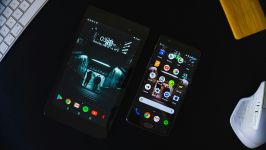Members of the Bi-Partisan Privacy Caucus of the Congress of the United States, led by its co-chairman Rep. Joe Barton of Texas, sent a letter to Google CEO Larry Page to inquire about privacy concerns in line with the use of Google Glass. The representatives want information from the search engine giant by June 14.
Barton and his colleagues cited privacy issues before involving Google to raise questions on how the company will protect the privacy of consumers from unintentional collection of data without the consent of the user.
Aside from Barton, the letter from the U.S. Congress was signed by Representatives Loretta Sanchez, Booby Rush, Richard Nugent, Walter Jones, Henry Johnson, Steve Chabot, and John Borrow. The lawmakers aim at clarifying several points to protect consumers:
- When using Google Glass, is it true that this product would be able to use Facial Recognition Technology to unveil personal information about whomever and even some inanimate objects that the user is viewing? Would a user be able to request such information? Can a non-user or human subject opt out of this collection of personal data? If so, how? If not, why not?
- In Google's privacy policy, it states that the company "may collect device-specific information (such as your hardware model, operating system version, unique device identifiers, and mobile network information including phone number)." Would Google Glass collect any data about the user without the user's knowledge and consent? If so, why? If not, please explain.
- Will Google Glass have the capacity to store any data on the device itself? If so, will Google Glass implement some sort of user authentication system to safeguard stored data? If not, why not? If so, please explain.
Some of the issues raised by the lawmakers actually came up during the Google I/O developer conference in San Francisco. The Google Glass team responded during a fireside chat that the Glass will have indicators so other people will know if a Glass user is trying to take a photo or video of them.
Steve Lee, product director of Google Glass, explained that the company has thought about privacy issues, etiquette, and social implications since the start of the development of the product. Lee shared that facial recognition was part of the development phase of the Glass but is not yet incorporated as a feature today.
Charles Mendis, an engineer involved with the project, also emphasized that they developed the glass so people will have social cues such as speaking to the glass or raising one's hand when doing something with the Glass. He also added that the display of the device lights up when it is being used and observers can clearly see this. Mendis reiterated that every app that will be rolled out will follow such policy or they will be rejected.
The Google Glass has been generating some buzz but what it can do at the moment is very limited. Security and privacy are two big issues its creators must address before consumers can really rely on the computing eyewear.









